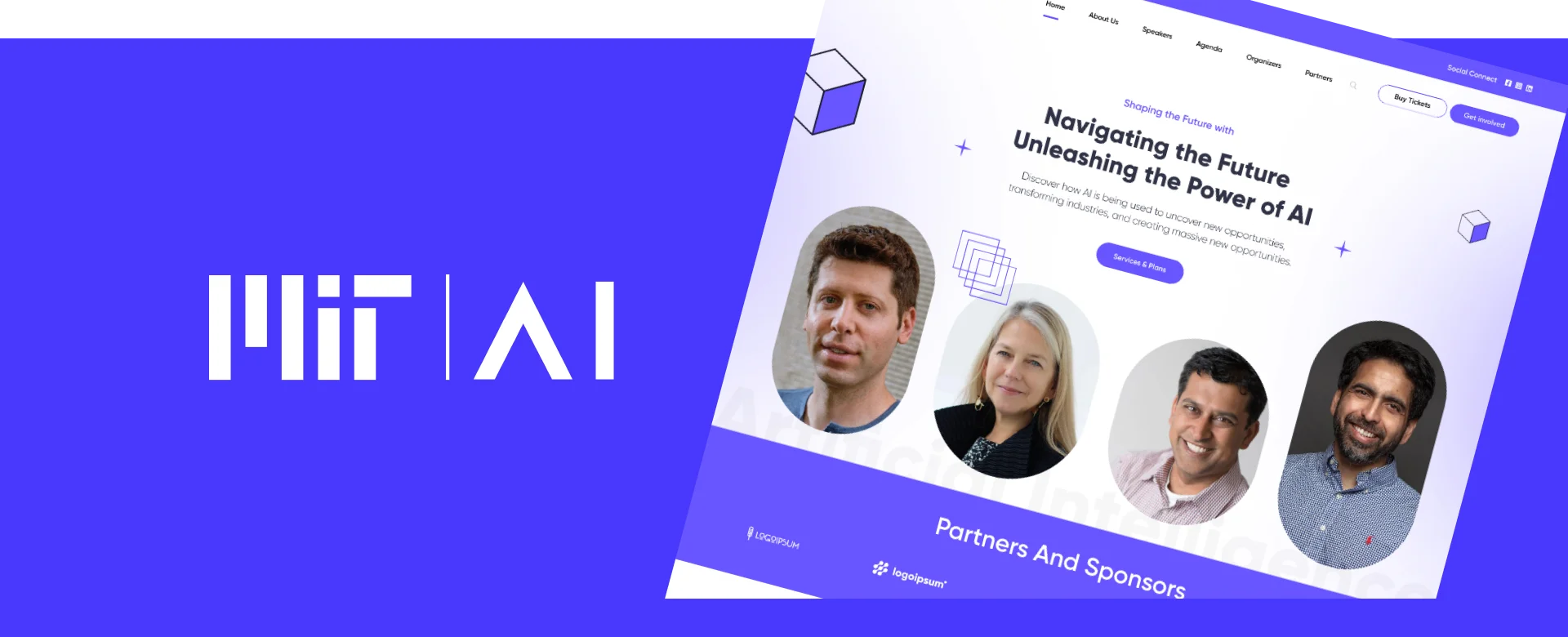MIT AI
Confrence
The MIT AI Conference, a renowned gathering of thought leaders in the field of Artificial Intelligence, sought to elevate the event experience for attendees, speakers, and sponsors.

Project Overview
The MIT AI Conference, a renowned gathering of thought leaders in the field of Artificial Intelligence, sought to elevate the event experience for attendees, speakers, and sponsors. This project aimed to leverage technology to enhance brand recognition, increase engagement, and personalize the conference experience through data-driven insights.
Project Challenges

Strengthened brand identity
Create a visually compelling and consistent brand identity across all communication channels, reflecting the conference's innovative and forward-thinking spirit.

Data-driven optimization
Utilize data analytics to identify trends, optimize various aspects of the conference (e.g., registration process, session scheduling, networking opportunities), and personalize the experience for attendees.

Targeted outreach
Implement effective email marketing strategies to reach a wider audience, segment potential attendees based on interests, and personalize communication.

Engaging storytelling
Employ compelling digital storytelling techniques through multimedia content like graphics, videos, and interactive elements to create a captivating and informative experience.
Project Outcome
By leveraging the capabilities of Webflow, a web development platform, the project successfully addressed the challenges and delivered the following results:
Project Conclusion
By embracing technology and focusing on a data- driven approach, this project successfully transformed the MIT AI Conference experience, leading to:
-
Enhanced brand image: A strong and consistent brand identity across various touch points strengthened the conference's positioning in the Al community.
-
Increased engagement: Targeted email campaigns and personalized communication strategies led to higher attendee registration and overall engagement.
-
Optimized conference experience: Data-driven insights informed decision-making, leading to a more efficient and personalized experience for all participants.
-
Captivating storytelling: Compelling digital content effectively communicated the conference's value and attracted a wider audience.
This successful project demonstrated the power of technology in transforming a traditional event into a dynamic and data-driven experience, ensuring the continued success of the MIT AI Conference in fostering collaboration and shaping the future of Artificial Intelligence.






